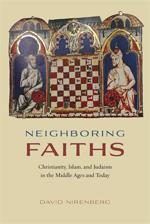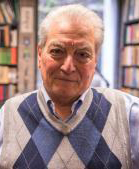
Princeton University, PhD '74
BIOGRAPHY
Professor Woods focuses primarily on the history of Turkey, Iran, and Central Asia from the thirteenth to eighteenth century. He is particularly interested in aspects of the encounter of sedentary and nomadic people in those regions during that time period. He is at present working on several projects dealing with the age of Chinggis Khan and Timur (Tamerlane). He has played a central role in the Center for Middle Eastern Studies since 1980.
Recent Research / Recent Publications
-
The Aqquyunlu: Clan, Confederation, Empire, revised and expanded edition. Salt Lake City: University of Utah Press, 1999
-
Fadlullah Khunji-Isfahani's Tarikh-i Alam-ara-yi Amini. Persian text edited by John E. Woods with an abridged English translation by Vladimir Minorsky, revised and augmented by John E. Woods. London: Royal Asiatic Society, 1992 [released 1993]
-
"Timur's Genealogy." In Intellectual Studies on Islam: Essays Written in Honor of Martin B. Dickson, edited by Michel M. Mazzaoui and Vera B. Moreen. Salt Lake City: University of Utah Press, 1990
-
The Timurid Dynasty. Papers on Inner Asia No. 14. Bloomington: Research Institute for Inner Asian Studies, Indiana University, 1990
-
"The Rise of Timurid Historiography." Journal of Near Eastern Studies 48 (1987).
-
Appears in the 2016 documentary, "The Tomb of Genghis Khan: The Secret Revealed"
-
Awarded 2014 Quantrell Award for Excellence in Undergraduate Teaching
-
Awarded the Farabi International Award by UNESCO and the Iranian Government for Aqquyunlu: Clan, Confederation, Empire, revised edition (Utah, 1999)
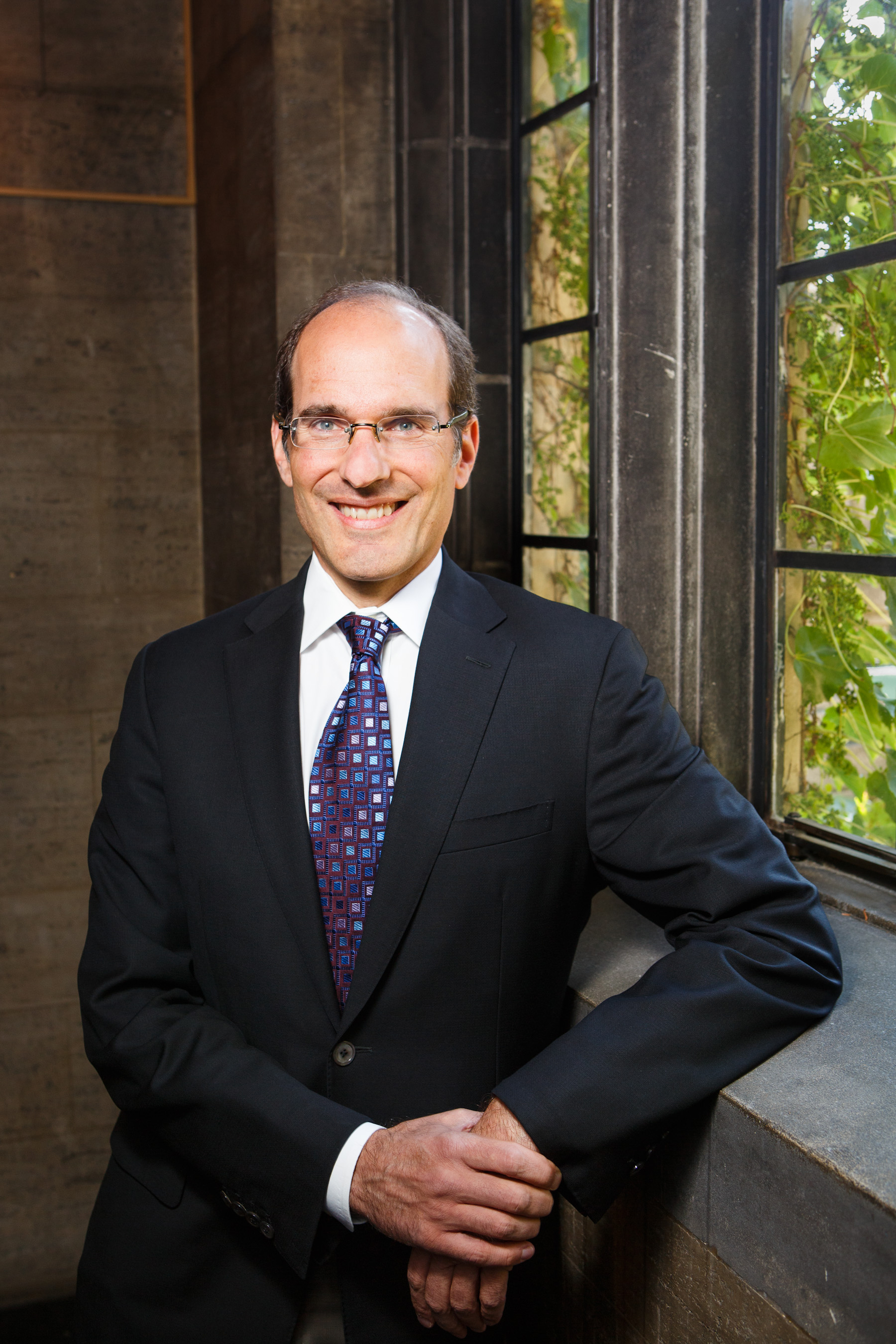
Princeton University, PhD '92
BIOGRAPHY
I have spent most of my intellectual life shuttling between the micro and the macro, trying to understand how life and ideas shape and are shaped by each other. One stream of my work has approached these questions through religion, focusing on the ways in which Jewish, Christian, and Islamic cultures constitute themselves by interrelating with or thinking about each other. My first book, Communities of Violence: Persecution of Minorities in the Middle Ages, studied social interaction between the three groups within the context of Spain and France in order to understand the role of violence in shaping the possibilities for coexistence. In later projects I explored the work that “Judaism,” “Christianity,” and “Islam” do as figures in each other’s thought. One product of that approach, focused on art history, was (jointly with Herb Kessler) Judaism and Christian Art: Aesthetic Anxieties from the Catacombs to Colonialism (2011). In Anti-Judaism: The Western Tradition (2013), I attempted to apply the methodology to a very longue durée, studying the work done by pagan, Christian, Muslim, and secular thinking about Jews and Judaism in the history of ideas. More or less simultaneously in Neighboring Faiths: Christianity, Islam, and Judaism Medieval and Modern (2014), I tried to bring the social into conversation with the hermeneutic, in order to show how, in multireligious societies, interactions between lived experiences and conceptual categories shape how adherents of all three religions perceive themselves and each other. Then in Aesthetic Theology and Its Enemies: Judaism in Christian Painting, Poetry, and Politics (2015), I focused on how thinking about Judaism shaped the ways in which Christian cultures could imagine the possibilities and limits of community and communication.
Beginning with my book Anti-Judaism, which stretched from ancient Egypt to the twentieth century in order to try to understand the work done by a family of concepts across history, I have tried to cultivate a new approach to the “long history” of ideas. My most recent book, Uncountable: A Philosophical History of Number and Humanity from Antiquity to the Present, written in collaboration with Ricardo Nirenberg (a mathematician who happens also to be my father), follows this path as well. It explores the long history of the various types of sameness that underpin the claims of different forms of knowledge (from poetry and dreams, to monotheism, math, and physics), using these to think critically about the powers and the limits of the sciences and the humanities. I am now at work on the long history of yet another family of concepts, namely the inter-connected history of race and religion from the Neolithic to the present.
Recent Research / Recent Publications
Coauthored with Ricardo Nirenberg. Uncountable: A Philosophical History of Number and Humanity from Antiquity to the Present. Chicago, IL: University of Chicago Press, 2021.
Communities of Violence: Persecution of Minorities in the Middle Ages. Princeton, NJ: Princeton University Press, twentieth-anniversary edition with new preface, 2016.
Aesthetic Theology and Its Enemies: Judaism in Christian Painting, Poetry, and Politics. Lebanon, NH: University Press of New England, 2015.
Neighboring Faiths: Christianity, Islam, and Judaism in the Middle Ages and Today. Chicago, IL: University of Chicago Press, 2014.
- Review of Neighboring Faiths and Anti-Judaism by Carlos Fraenkel, "We Hear and We Disobey," London Review of Books (May 21, 2015): 31–34.
Anti-Judaism: The Western Tradition. New York: W.W. Norton, 2013.
- Review by Michael Walzer, "Imaginary Jews," New York Review of Books (Mar. 20, 2014)
- Review by Anthony Grafton, "The Strange History of Antisemitism in Western Culture," New Republic (Oct. 11, 2013)
Discusses book on US Holocaust Memorial Museum podcast
Awarded Ralph Waldo Emerson Award
Communities of Violence: Persecution of Minorities in the Middle Ages. Princeton, NJ: Princeton University Press, 1996; paperback edition, 1998. Spanish translation: Comunidades de Violencia: Persecución de minorías en la edad media. Peninsula Editorial, 2001; French translation: Violence et minorités au Moyen Age. Paris: Presses Universitaires de France, 2001.
- 2000 John Nicholas Brown Prize, Medieval Academy of America
- 1998 Herbert Baxter Adams Prize, American Historical Association
- 1998 Best First Book in Iberian History, Society for Spanish and Portuguese Historical Studies
- 1996 Premio del Rey Prize, American Historical Association
- Coedited with María Elena Martínez and Max Hering Torres. Race and Blood in Spain and Colonial Latin America. LIT-Verlag, 2012.
- Coedited with Herbert Kessler. Judaism and Christian Art: Aesthetic Anxieties from the Catacombs to Colonialism. Philadelphia: University of Pennsylvania Press, 2011.
- "The Impresarios of Trent: The Long and Frightening History of the Blood Libel." Nation (November 16, 2020).
- "What Is Islam? (What Is Christianity? What Is Judaism?)." Raritan 35 (Fall 2016): 1–14.
- "Love." In What Reason Promises: Essays on Reason, Nature, and History, edited by Wendy Doniger, Peter Galison, and Susan Neiman, 46–54. Berlin: De Gruyter, 2016.
- With Leonardo Capezzone. "Religions of Love: Judaism, Christianity, Islam." In The Oxford Handbook of the Abrahamic Religions, edited by Adam Silverstein and Guy G. Stroumsa, 518–535. Oxford: Oxford University Press, 2015.
- "Power and Piety: Is the Promotion of Violence Inherent to Any Religion?" Nation (Apr. 29, 2015).
- "Posthumous Love in Judaism." In Love After Death: Concepts of Posthumous Love in Medieval and Early Modern Europe, edited by Bernhard Jussen and Ramie Targoff, 55–70. Berlin: De Gruyter, 2015.
- "'Judaism' as Political Concept: Toward a Critique of Political Theology." Representations 128 (Fall 2014): 1–29.
- "'Judaism,' 'Islam,' and the Dangers of Knowledge in Christian Culture, with Special Attention to the Case of King Alfonso X, 'the Wise,' of Castile." In Mapping Knowledge: Cross-Pollination in Late Antiquity and the Middle Ages. Arabica Veritas, vol. I, edited by C. Burnett and P. Mantas-España, 253–76. Cordoba: Oriens Academica, 2014.
- "Sibling Rivalries, Scriptural Communities: What Medieval History Can and Cannot Teach Us about Relations between Judaism, Christianity, and Islam." In Faithful Narratives, edited by Andrea Sterk and Nina Caputo, 63–82. Ithaca, NY: Cornell University Press, 2014.
- "Christian Love, Jewish 'Privacy,' and Medieval Kingship." In Center and Periphery: Studies on Power in the Medieval World, edited by Katherine L. Jansen, G. Geltner, and Anne E. Lester, 25–37. Leiden: Brill, 2013.
- Coauthored with Ricardo Nirenberg. "Badiou's Number: A Critique of Mathematical Ontology." Critical Inquiry 37, no. 4 (2011): 583–614. Response by Alain Badiou and a reply by us, "Critical Response." Critical Inquiry 38 (2012): 362–87.
- "From Cairo to Cordoba." Nation (June 1, 2011).
- "When Philosophy Mattered." New Republic (Feb. 3, 2011): 39–43.
- "Shakespeare's Jewish Questions." Renaissance Drama (2010): 77–113.
- "Double Game: Maimonides in his World." London Review of Books (Sept. 23, 2010): 31–32.
- "Anti-Zionist Demography." Dissent (Spr. 2010): 103–9.
- Interviewed on anti-Semitism for The New Yorker, 2020
- Writes op-ed on Facebook's hate speech policy, Tablet Magazine, 2019
- Appointed interim dean of the Divinity School, 2018
- Appointed executive vice provost
- Quoted in an Atlantic article on Charlottesville and anti-Semitism
- Awarded 2017 Historikerpreis der Stadt Münsters for his body of work
- Delivers the University of Chicago 527th Convocation Address [video, 12 minutes]
- Awarded Doctor of Philosophy, Honoris Causa, University of Haifa, 2016
- Elected to the American Academy of Arts and Sciences
- Publishes Aesthetic Theology and Its Enemies: Judaism in Christian Painting, Poetry, and Politics (Brandeis, 2015)
- Delivers 2015 Harper Lecture on Religion and Violence [video, 79 minutes]
- Publishes Neighboring Faiths: Christianity, Islam, and Judaism in the Middle Ages and Today (Chicago, 2014).
- Appointed a Fellow of the Medieval Academy of America
- Appointed Dean of the Social Sciences Division
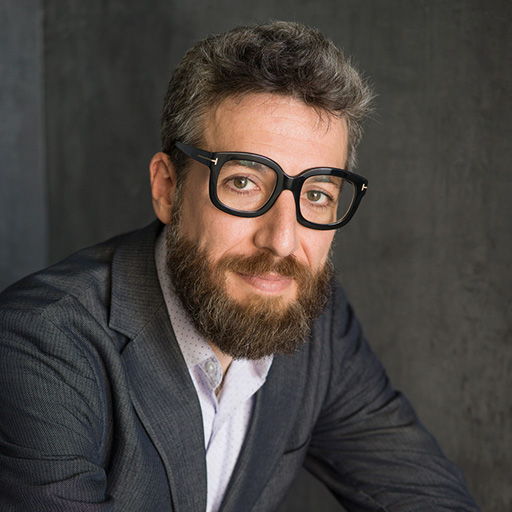
New York University, PhD '15
BIOGRAPHY
I am a scholar of the modern Middle East specializing in the historical geography of global capitalism, comparative studies of colonialism and empire, and environmental history.
Over the past decade of research and teaching, my overarching concern has been to address, simultaneously, two related challenges. First, as a historian of the postcolonial world, I am to pursue and develop new approaches to the critical study of global capitalism that demonstrate the continued relevance of insights and concerns that have animated the long and varied tradition of political economy. But second, drawing directly on the critiques of Eurocentrism and economic determinism that have been so central to the project of postcolonial studies, I seed to produce and teach historical narratives that unsettle the longstanding tendency to treat the “rest of the world” as mere passive recipients of ideas and processes that originate elsewhere.
My first book project, Egypt’s Occupation: Colonial Economism and the Crises of Capitalism (Stanford University Press, 2020) explores both the political economy of the Egyptian state and the role of political-economic thought in the struggle over British rule in Egypt following the occupation of 1882. For decades, Egypt has stood as a paradigmatic case of peripheral development in the capitalist world economy. From this perspective, the advent of Britain’s “veiled protectorate” after 1882 simply reinforced Egypt’s prior status as a vast plantation for the production of raw cotton and a market for industrial goods from Europe. All but obscured in such accounts is Egypt’s emergence as a key site for investment and experimentation in the worldwide financial expansion that characterized global capitalism at the close of the nineteenth century. Egypt’s Occupation tells the story of that financial boom and the crisis that followed. And the book goes on to demonstrate that this long-neglected process of financialization was of central importance to the politics of British rule. Across the four decades from the invasion of 1882 to Britain’s unilateral declaration of Egyptian independence in 1922, Egypt’s Occupation traces the complex career of the discourse I refer to as “colonial economism.” From the outset, British officials held that Egyptians, as racially distinctive human subjects, were capable of no more and no less than a bare recognition of their immediate material interests; the legitimacy of imperial rule would, accordingly, vary as a direct function of the “economic development” that British reform could deliver. In grappling with a discourse of colonial improvement that appeared to be succeeding on its own terms, Egypt’s early nationalist thinkers elaborated their own alternative accounts of the ephemeral and uneven qualities of financialization. They thereby articulated a range of rigorous, if fragmentary, critiques of the political and economic theories upon which the British had built their project of rule. In time, these efforts to find grounds for national sovereignty beyond the mere calculus of economic gain and lost shaped both the conceptual apparatus and the political strategies through which a growing nationalist movement sought to bring the occupation to an end.
Over the past few years, I have begun work on a new project, tentatively entitled Tilted Waters: The World the Suez Canal Made. Spanning more than two centuries, from the earliest European proposals to excavate a channel through the Isthmus of Suez to the Egyptian military regime’s current efforts to remake the waterway and its environs into a major processing hub and free trade zone, the book will explore the many and shifting roles that the Suez Canal has played in the production of global inequalities.
Before joining the Department of History, I was assistant professor of historical studies at The New School in New York City. I have also held fellowships at Yale University’s Program in Agrarian Studies and George Washington University’s Institute for Middle East Studies.
Recent Research / Recent Publications
-
“Peaceful Wars and Unlikely Unions: The Azhar Strike of 1909 and the Political of Comparison in Egypt,” Comparative Studies of Society and History (2022): 1-26.
-
Coauthored with Ahmad Shokr, “Capitalism in Egypt, Not Egyptian Capitalism,” in Joel Beinin, Bassam Haddad, and Sherene Seikaly, eds., A Critical Political Economy of the Middle East and North Africa (Stanford: Stanford University Press, 2020): pp. 123-142.
-
Egypt’s Occupation: Colonial Economism and the Crises of Capitalism (Stanford: Stanford University Press, 2020).
-
Coauthored with Ahmad Shokr, "Finding Value in Empire of Cotton," Critical Historical Studies Vol. 4, No. 1 (Spring 2017): 107-136.
-
"Review: John Chalcraft, Popular Politics in the Making of the Modern Middle East (Cambridge: Cambridge University Press, 2016)," Middle East Journal Volume 70, No. 4 (Autumn 2016): 688-691.
-
“Boom, Bugs, Bust: Egypt's Ecology of Interest, 1882-1914,” Antipode (February 2016).
-
“Review Essay: A New Materialism? Globalization and Technology in the Age of Empire,” International Journal of Middle East Studies Vol. 47, No. 2 (April 2015): 369-381.
-
“The Scales of Public Utility: Agricultural Roads and State Space in the Era of the British Occupation,” in Marilyn Booth and Anthony Gorman, eds., The Long 1890s in Egypt (Edinburgh: University of Edinburgh Press, 2014): 57-86.
-
“Review: Raouf Abbas & Assem El-Dessouky, The Large Landowning Class and the Peasantry in Egypt, 1837-1952, Amer Mohsen with Mona Zirki trans., (Syracuse: Syracuse University Press, 2012)," Economic History Review, 66, 2 (2013): 676-8.
-
“Review Essay: The Invisible State,” Arab Studies Journal Vol. XX, No. 1(Spring 2012): 236-245
-
“Review: Michael Ezekiel Gasper, The Power of Representation: Publics, Peasants, and Islam in Egypt (2009),” Arab Studies Journal Vol. XVIII, No. 1 (Spring 2010): 374-8.
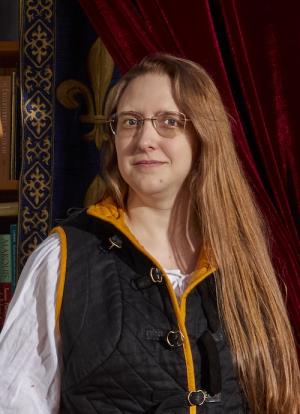
Harvard University, PhD '09
BIOGRAPHY
My research on intellectual history, or the history of ideas, is my way of exploring how history and thought shape each other over time. The Italian Renaissance is a perfect moment for approaching this question because at that point the ideas about science, religion, and the world that had developed in the Middle Ages suddenly met those of the ancient world, reconstructed from rediscovered sources. All at once many beliefs, scientific systems, and perceived worlds clashed, mixed, and produced an unprecedented range of new ideas, which in turn shaped the following centuries and, thereby, our current world.
My current research focuses on patterns in the history of the real motives of censors over space and time, from antiquity to the digital age, especially the Inquisition and early modern censorship, and 20th century censorship of popular media. The enormous impact of Orwell's Nineteen Eighty-Four has led modern people to imagine censorship working the way his Ministry of Truth does: imposed top-down on a populace, with vast resources, a stable, long-term plan, and the goal of controlling society, stifling thought, and destroying information. But the real actions and records of past censors reveal that the vast majority of real censorship has inverse qualities: shaped by bottom-up social anxiety, constantly desperate for funds and personnel, hastily improvised in response to a perceived crisis, constantly transformed ad hoc as the perceived threat changes, and (from the point of view of the censors) aiming to protect vulnerable individuals, and to encourage self-censorship rather than destroying extant information. Only by examining the real motives which have made people say "Yes" to censorship over space and time can we understand what patterns help it flourish, and ways to combat it. I am especially interested in how innovations in information technology trigger waves of new censorship, a topic I explored in a dialog series and museum exhibit: voices.uchicago.edu/censorship.
As a novelist (science fiction, fantasy, and historical fiction), I am also very interested in how to better connect the worlds of history research and speculative fiction, both to innovate pedagogically, and to help new improved historical narratives and correctives make it into the books, games, and TV which are what shape most people's first impressions of history, but often draw on histories that are more than half a century out of date. I have a forthcoming collection of essays on history and genre fiction, Diaspora of Time: Conversations on Science Fiction and Fantasy coming from Tor Books, several publications on history in SF&F, comics, anime & manga, and am a nonfiction columnist for Strange Horizons. I also employ creative writing, role-playing and LARP in my classes, and work with SFWA (the Science Fiction Writers of America) on helping to connect writers with historians and their research. I also have a forthcoming popular press book, Why Renaissance? Invention of a Golden Age, which aims to present to a general audience how and why the ideas of a golden Renaissance and bad Middle Ages were invented, and how historians are still working to improve and update them, and to update popular conceptions of Renaissance humanism.
My first scholarly book, Reading Lucretius in the Renaissance, explores scholars' use of Lucretius's Epicurean didactic poem De Rerum Natura from its rediscovery in 1417 to 1600, focusing on the challenges its atomistic physics posed to Christian patterns of thought. In a period when atheism was often considered a sign of madness, the sudden availability of a sophisticated system that explained natural phenomena in nontheistic ways and that argued powerfully against the immortality of the soul, the afterlife, and a creator God threatened to supply the one weapon unbelief had lacked in the Middle Ages: good answers. At the same time, humanist scholars who idealized ancient Rome were eager to study a poem whose language and structure so often anticipated their beloved Aeneid. My book uncovers humanist methods for reconciling Christian and pagan philosophy and shows how atomism and ideas of emergent order and natural selection, so critical to our current thinking, became situated in Europe's intellectual landscape at the beginning of the scientific transformations of the seventeenth century. In it I employ a new quantitative method for analyzing marginalia in manuscripts and printed books, whose results expose how changes in scholarly reading practices over the course of the sixteenth century, fostered by the growth of printing, controlled the circulation of texts and gradually expanded Europe's receptivity to radical science, setting the stage for the scientific revolution.
I also work extensively on classical transformations, i.e., how, thanks to humanist enthusiasm for reconstructing the golden age of ancient Greece and Rome, material received from the classical and medieval worlds was transformed in Renaissance hands and in turn transformed the Renaissance world. I am working on a long-term project on the imagined antiquity believed in by Renaissance humanists, and how their efforts to reconstruct the ancient world aimed, not at the ancient world as we now understand it, but at a very different ancient world whose character can be reconstructed from Renaissance paratexts, imitations, paintings, period translations, biographies of ancients, forgeries, and spuria which we often dismiss today as simple errors. Along with the Classical Transformations Group at Texas A&M University and the Transformationen der Antike group at the Humboldt-Universität zu Berlin, I am working to change the way we think about reception studies, and bring greater attention to how each period transforms and is transformed by the materials it inherits from earlier eras.
Much of my research has been conducted in rare books libraries, especially in Rome and Florence, where I worked with Renaissance copies of classical texts, both manuscripts and printed books. I have been a Fulbright scholar in Italy and a graduate reader and later a fellow at the Villa I Tatti Harvard University Center for Italian Renaissance Studies. I completed my PhD and graduate teaching at Harvard University, and taught at Texas A&M University before coming to the University of Chicago. My article "Reading Lucretius in the Renaissance" (Journal of the History of Ideas, 73:3, [July 2012]: 395–416) won the 2013 I Tatti Prize for Best Article by a Junior Scholar, and the prize for the best article in the JHI.
All my projects stem from my overall interest in the relationship between ideas and historical change. Our fundamental convictions about what is true evolve over time, so different human peoples have, from their own perspectives, lived in radically different worlds. The universe which Thomas Aquinas thought he occupied was not the universe in which Plato or Machiavelli or Freud believed they lived, and such beliefs in turn shaped the futures they tried to build out of what they inherited from the past. Our own current efforts to build the future are likewise predicated on what we believe is true, but what we believe is not what any past culture has believed, nor what any future cultures will believe.
Recent Research / Recent Publications
- Inventing the Renaissance: The Myth of a Golden Age. Chicago, IL: The University of Chicago Press, 2025.
- Reading Lucretius in the Renaissance. Cambridge, MA: Harvard University Press, I Tatti Renaissance Studies Series, 2014.
- Coauthored with James Hankins. The Recovery of Classical Philosophy in the Renaissance, a Brief Guide. Florence: Istituto Nazionale di Studi sul Rinascimento, 2007.
- “The Persecution of Renaissance Lucretius Readers Revisited,” in Philip Hardie, Valentina Prosperi, and Diego Zucca eds., Lucretius Poet and Philosopher: Background and Fortunes of ‘De Rerum Natura’, De Gruyter, 2020.
- “Humanist Dissemination of Epicureanism,” in The Oxford Handbook of Epicureanism, ed. Phillip Mitsis. Oxford: Oxford University Press, 2020.
- “The Effects of Authorial Strategies for Transforming Antiquity on the Place of the Renaissance in the Current Philosophical Canon,” in Beyond Reception: Renaissance Humanism and the Transformation of Classical Antiquity, eds. Patrick Baker, Johannes Helmrath, and Craig Kallendorf, 2019.
- “Humanist Lives of Classical Philosophers and the Idea of Renaissance Secularization: Virtue, Rhetoric, and the Orthodox Sources of Unbelief.” Renaissance Quarterly, 70, 3 (2017), 935-76.
- “On Progress and Historical Change,” KNOW: A Journal on the Formation of Knowledge, Fall 2017, pp. 319-337.
- “The Active and Monastic Life in Humanist Biographies of Pythagoras,” Forms and Transfers of Pythagorean Knowledge: Askesis—Religion—Science, eds. Almut-Barbara Renger & Alessandro Stavru. Harrassowitz: Wiesbaden, 2016.
- “The Recovery of Stoicism in the Renaissance,” in The Routledge Handbook of the Stoic Tradition, ed. John Sellars. New York: Routledge, 2016, pp. 117-132.
- "T. Lucretius Carus, Addenda et Corrigenda." In Catalogus Translationum et Commentariorum: Mediaeval and Renaissance Latin Translations and Commentaries, vol. 10. Washington D.C.: Catholic University of America Press, 2014.
- "The Recovery of Stoicism in the Renaissance." In The Routledge Handbook to the Stoic Tradition, edited by John Sellars, forthcoming.
- "The Use and Defense of the Classical Canon in Pomponio Leto's Biography of Lucretius." In Vitae Pomponianae, Biografie di Autori Antichi nell’Umanesimo Romano (Lives of Classical Writers in Fifteenth-Century Roman Humanism), proceedings of a conference hosted by the Danish Academy in Rome and the American Academy in Rome, April 24, 2013, Renaessanceforum (Forum for Renaissance Studies, Universities of Aarhaus & Copenhagen), 2014.
- "Reading Lucretius in the Renaissance." The Journal of the History of Ideas 73, no. 3 (July 2012): 395–416.
- Terra Ignota (novel series, four volumes starting with volume 1 Too Like the Lightning), Tor Books 2016-21.
- “Writing/Realizing Disability + Power,” Strange Horizons, August 2022.
- “The Protagonist Problem,” with Jo Walton, Uncanny Magazine, 2021.
- “Censorship and Genre Fiction: Let’s Broaden our Broader Reality.” Uncanny Magazine, May 2020.
- "Ada Palmer and the Weird Hand of Progress” profile in Wired Magazine, 2022.
- "Why Trump's Decision to Intervene in Campus Speech Policies Is So Dangerous," op-ed, Washington Post, Mar. 28, 2019.
- "Why Is Silcon Valley So Obsessed with the Virtue of Suffer?" New York Times, Mar. 26, 2019.
- "How #Article13 Is Like the Inquisition: John Milton against the EU #CopyrightDirective," Boing Boing, Mar. 24, 2019
- Profile in the university's alumni magazine
- Reviews Enlightenment Now for Harvard Magazine
- Launches censorship research project with Adrian Johns
- Q&A with Chicago Magazine on third novel
- NPR reviews Too Like the Lightning
- Scientific American interview with Palmer about her novel
- Edits Volume of Student Essays as Part of Graduate Colloquium
- Publishes Reading Lucretius in the Renaissance (Harvard, 2014)
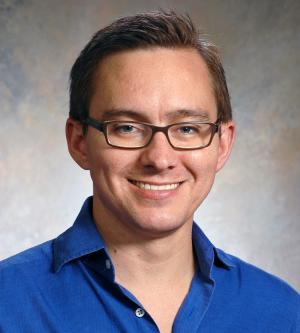
Princeton University, PhD '09
BIOGRAPHY
A historian of the Iranian world in late antiquity, ca. 200–800 CE, Payne's research focuses primarily on the dynamics of Iranian imperialism, specifically how the Iranian (or Sasanian) Empire successfully integrated socially, culturally, and geographically disparate populations from Arabia to Afghanistan into enduring political networks and institutions.
His recent book, A State of Mixture: Christians, Zoroastrians, and Iranian Political Culture in Late Antiquity, explores the problem of religious diversity within the empire, showing how Syriac-writing Christians could create a place for themselves in a political culture not of their own making. He is currently at work on the role of Zoroastrian religious institutions and the intersection of ideological and material dimensions in Iranian history.
Recent Research / Recent Publications
- Co-editor, with Marcelo Campagno, Carlos García Mac Gaw, et al., Desigualdades Antiguas: Economía, Cultura y Sociedad en el Oriente Medio y el Mediterráneo (Buenos Aires, 2023).
- Co-editor with Rhyne King, The Limits of Empire in Ancient Afghanistan. Rule and Resistance in the Hindu Kush, circa 600 BCE–600 CE (Wiesbaden: Harrassowitz 2020).
- Editor, Visions of Community in the Post-Roman World: The West, Byzantium and the Islamic World, 300–1100 (Routledge, 2016).
- Co-editor with Myles Lavan and John Weisweiler, Cosmopolitanism and Empire: Universal Rulers, Local Elites, and Cultural Integration in the Ancient Near East and Mediterranean (OUP, 2016)
Awards for A State of Mixture: Christians, Zoroastrians, and Iranian Political Culture in Late Antiquity (California, 2015):
- World Award for Book of the Year, Islamic Republic of Iran
- Jacques Barzun Prize in Cultural History, American Philosophical Society
- Ehsan Yarshater Prize, International Society for Iranian Studies
- Award for Excellence in the Study of Religion, American Academy of Religion
Named a Neubauer Family Assistant Professor in 2013.
